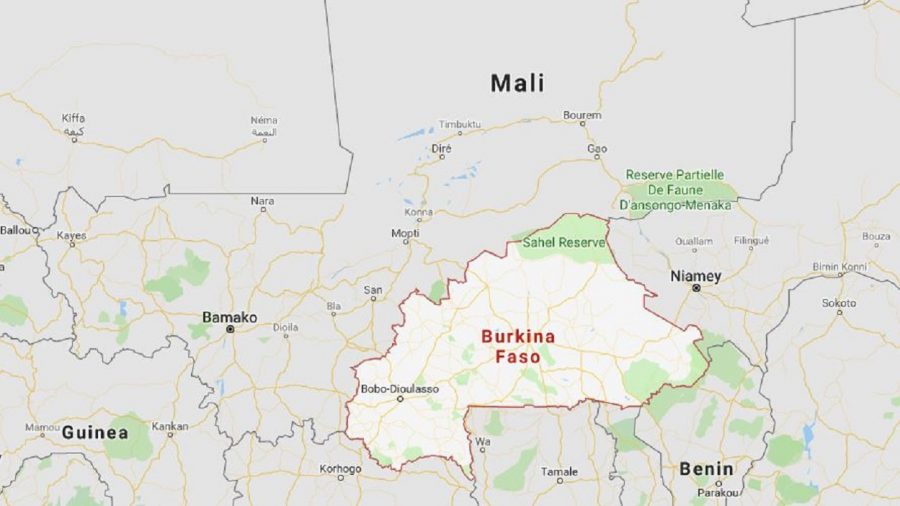Armed men burst into a church in Africa on April 28 and killed at least six people.
The unidentified gunmen killed a pastor and five congregants at a Protestant church in northern Burkina Faso. An upsurge of Islamist violence this year has taken place in the country, which boasts of a history of religious tolerance.
Two of the congregants were sons of the pastor who was killed, Pierre Ouedraogo, according to the BBC.
The government declared a state of emergency in several northern provinces bordering Mali in December 2018 because of deadly Islamist attacks, including in Soum, the region where Sunday’s attack took place.
#UPDATE Gunmen killed four worshippers and a pastor in Burkina Faso on Sunday, security and local sources say, in the first jihadist attack on a church in the west African nation since jihadist violence erupted there https://t.co/cfLpyBG8i2
— AFP news agency (@AFP) April 29, 2019
“The attack happened around 1:00 p.m., just as the faithful were leaving the church at the end of the service,” a member of the church who did not want to be identified told AFP. “The attackers were on motorbikes. They fired in the air before aiming at the members of the congregation,” the witness added.
Government spokesman Remy Fulgance Dandjinou said on Monday that the latest attack was the first to target a church in the majority Muslim country, which consists of 55 to 60 percent Muslims and roughly 20 to 25 percent Christians. He confirmed the attack took place in Silgadji but declined to provide more details.
A Catholic priest was kidnapped in the same part of the country in March and it’s not clear if he’s dead or alive. In June 2018, a Protestant pastor and two family members were kidnapped in the area.
The men who attacked the church on Sunday fled to northern Burkina Faso near the border with Mali, witnesses told BBC.
Pastor among victims of deadly raid on Burkina Faso church https://t.co/m1x5mXYq4G pic.twitter.com/vjcqeLn10E
— FRANCE 24 (@FRANCE24) April 29, 2019
“Armed groups … have every interest in troubling or going against the good understanding between religions. We have observed this strategy in other countries in the region and in the world,” said Rinaldo Depagne, West Africa Project director at the International Crisis Group.
Because of the surge in violence from radical Muslims, France, which used to rule parts of Africa, has deployed some 4,500 troops in Mali, Burkina Faso, Niger, and Chad in a mission codenamed Barkhane to help local forces try to flush out jihadi groups, reported AFP.
It wasn’t clear which jihadi group was behind the attack over the weekend but in recent months a number have carried out attacks, including the Ansarul Islam group, the Group to Support Islam and Muslims (GSIM), and Islamic State in the Greater Sahara, some with links to the Middle Eastern-based ISIS terrorist group.
A total of 350 people have been killed in the attacks since 2015, including both Muslims and Christians. The jihadis are opposed not only to outsiders but also Muslims they don’t think are radical enough, security sources told AFP.
Gunmen who arrived on motorbikes opened fire on a church in Burkina Faso during Sunday worship. Officials say the pastor, two of his sons and three other worshippers were killed.
— Steve Herman (@W7VOA) April 29, 2019
“Scores of people have been murdered in what amounts to a dramatic deterioration in the rights situation in northern Burkina Faso,” Human Right Watch’s Sahel Director Corinne Dufka told AFP last month. “Villagers are living in fear as both armed Islamists and government forces have demonstrated utter disregard for human life.”
On April 4, Stéphane Dujarric, spokesman for the secretary-general of the United Nations, told reporters that clashes in northern Burkina Faso left more than 60 civilians dead.
“In total, some 136,000 people have so far been displaced in Burkina Faso, over half of them since January. Population displacement is accelerating because of the surge in violence, resulting in increased humanitarian challenges along the border with Mali and Niger,” she stated.
The attack in Burkina Faso came just one week after bombings at four churches and four hotels in Sri Lanka killed hundreds of people and left hundreds of others wounded.
Reuters contributed to this report.


